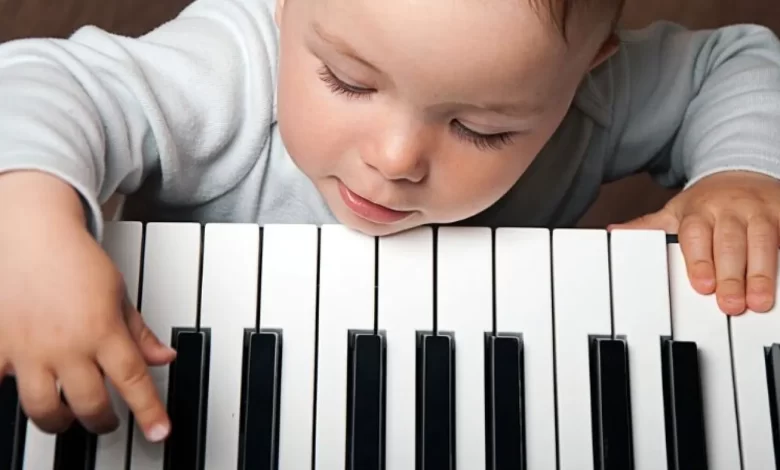How cheerful music can soothe your baby

Music and emotions are deeply linked. A title can evoke joy, sadness, nostalgia and even anger. But from what age are we sensitive to the emotions generated by music? Researchers from the University of Dundee, Scotland, tried to answer this question, in the specialized journal Psychological Studies. According to its authors, young children can be sensitive to music, especially happy titles. They return to their study in Tea Conversation.
How have scientists analyzed babies’ relationship to music?
At first, the scientists developed two categories of songs: happy and sad. To do this, they collected and listened to hundreds of lullabies and children’s songs and selected 25 that sounded happy or sad. Six of them were in English and the others were in other languages. “We played these songs in random order, with a control period characterized by silence, to 32 babies in a first experiment, they detail. We also analyzed how 20 behaviors, such as crying, yawning, sucking, sleeping and limb movements, changed millisecond by millisecond during music tracks and silence.In a second experiment, they recorded the heart rates of 66 newborns while they listened to the songs and during periods of silence.
Cheerful music has more effects on newborns
When hearing music, whether happy or sad, babies moved their eyes less frequently and paused longer between movements, compared to the silent period. “This could mean that both types of music had a calming effect on babies compared to no music“, note the authors. But happy music seems to have greater effects. They found that babies began to fall asleep during happy music, but not during sad music or when there was no music. “Additionally, they showed a decrease in their heart rate during happy music, but not during sad music or periods of silence, suggesting they were becoming calmer.”they point out.
Babies’ sensitivity to music: amazing results
This ability of babies to feel emotions related to music may surprise some. “This may be considered surprising because, ultimately, culture plays a major role in when and how we understand music – it’s something we learn, say the scientists. Preschoolers, for example, are often unable to associate images of happy or sad faces with happy or sad music..”
According to them, the sensitivity of newborns could be explained by the activities of their mothers during pregnancy. In previous work, they found that fetuses in the second and third trimesters reacted when their mother spoke. “Thus, listening, talking, singing, and listening to music can preform babies’ responses to music.”, they say. After their birth, it is now accepted that happy music is the most effective way to soothe them!












